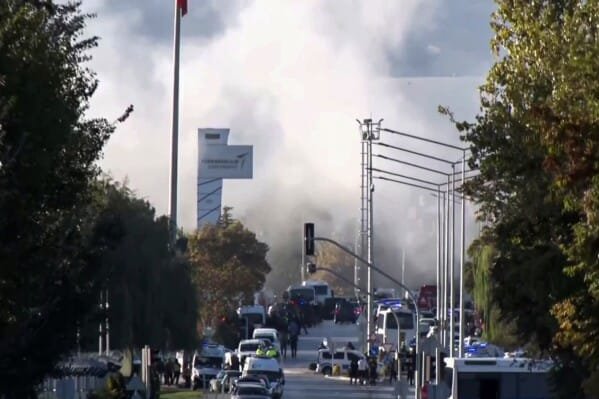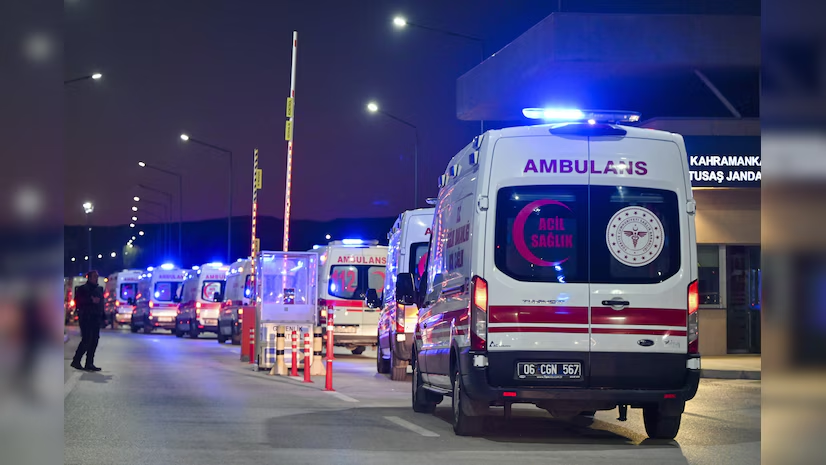The Highlights:
A deadly attack by Kurdish militants on a defense company near the city Thursday night rocked Ankara, prompting Turkey to unleash a series of airstrikes against militant groups in northern Iraq and Syria. The suspected PKK, with its Syrian affiliate, the YPG, are the main target of the strikes. Turkey has been locked in a long-standing conflict with the Kurdish militants. The retaliation continued to stir geopolitical tensions with all its local and international connotations.
Attack Near Ankara
October 23, 2024 On this day in 2024, a terror attack rattled the headquarters of Turkish Aerospace Industries (TUSAS), one of Turkey’s premier defense contractors, not far from the capital, Ankara. Within hours, the PKK-militia, which has waged insurgency against the Turkish state for decades, was blamed for the attack. Explosive and firearms-wielding fighters strafed the facility, leaving several dead and many more injured. That attack came at just the time that Ankara was hearing initial suggestions of a possible peace dialogue, but that has now pushed the city into escalating into a large-scale military response.

Turkish Interior Minister Ali Yerlikaya declared that the attackers were PKK militants and reignited Turkey’s long-standing fight with the Kurdish separatist organization. Turkish President Recep Tayyip Erdoğan also described the attack and vowed a ruthless and merciless campaign against every terrorist group that threatens Turkey’s security.
Response Measures in Iraq and Syria
Hours after the attack in Ankara, Turkish war jets took to the skies to bomb positions held by the PKK and YPG across northern Iraq and Syria. The Turkish Ministry of Defense said, in a statement, the over 40 locations associated with the militants were hit in the early hours of October 24, 2024, that killed several militants and destroyed key infrastructures such as arms storages and command centers. The attacks targeted mainly areas in Iraq’s Qandil Mountains and Syria’s Kurdish-controlled regions, which have long served as sanctuaries for these groups.

Turkey accuses the YPG of cooperating with the PKK. The YPG and its political affiliate, the Democratic Union Party or PYD, have denied allegations of cooperation with the PKK. However, Ankara has been persistent in viewing the YPG, even after its role in fighting ISIS, as an extension of the PKK and hence as a legitimate target.
Impact at a Regional Level
The military offensive launched by Turkey seems to come at the most tumultuous point in the geopolitical landscape ever. In its campaign against ISIS, the United States can’t take sides. Even when Washington has been supporting the Kurdish forces on the battlefield, it’s one of Turkey’s most important NATO allies. So when Ankara launches such strikes, they might as well be eroding its own ties with the U.S. and other Western allies.
Another humanitarian dimension of the ongoing conflict is the expansion of humanitarian crises both in northern Syria and northern Iraq. “Millions of civilians have been war-weary there for years,” their damage largely having to do with civilian infrastructure, reports already being made about losses within the local population. It is part of a broader operation by Turkey to roll back what it considers to be threats to its security posed by separatist Kurdish groups from within and without its borders.
Long History of Conflict
Turkey and the PKK have had one of the long-standing conflicts in the world because the Kurdish group started an armed struggle for autonomy in southeastern Turkey during the 1980s. The conflict has resulted in the killing of tens of thousands of people while often spilling over into neighboring countries like Iraq and Syria. The conflict remains unsolved through efforts at peace talks during early 2000s.
The YPG, now the target for Turkey as it emerged in Syria to be an important force in the Syrian Civil War, combatting both ISIS and forces of the Syrian government. Its gains have made it a thorn in the Turkish side by seizing control in the border region, and Ankara has feared that Kurdish autonomy in Syria emboldens separatist movements within Turkey.
Erdogan’s Hardline Approach
Turkish President Recep Tayyip Erdogan says Turkish authorities have zero tolerance for Kurdish militants and promised to completely destroy the PKK and any of its affiliates. After the Ankara attack, Erdogan called an emergency security meeting where he stated that Turkey will continue its military campaign against Kurdish militants until the whole threat from them is destroyed. “We will hunt them down until the last terrorist is killed,” Defense Minister Yaşar Güler said.
On the one hand, nationalists at home praised Turkey’s military actions while human rights groups and international organizations received significant criticism. The increasing concern is over the civilian toll of Turkey’s cross-border operations as well as the fallout in terms of stability for the region.
Conclusion
The Turkey campaign against PKK and YPG cannot abate, and this is witnessed by the ongoing conflict. The latest Ankara attack, followed by military retaliation, only provides a wake-up call to the previously omitted acknowledgment of how deeply rooted the Kurdish-Turkish conflict has become. With both sides refusing to budge, the region waits for another bout of violence and instability to be unleashed upon it.
For Latest News Updates Click Here
